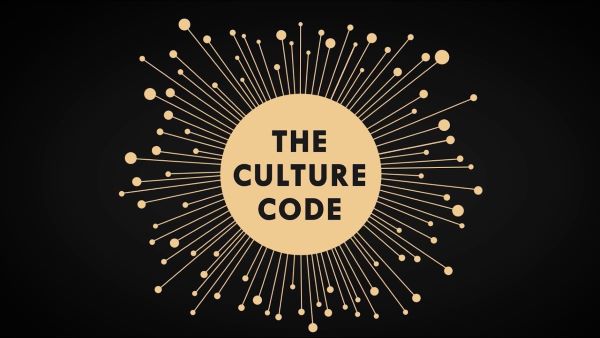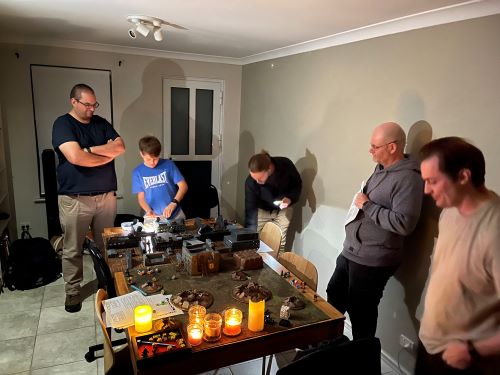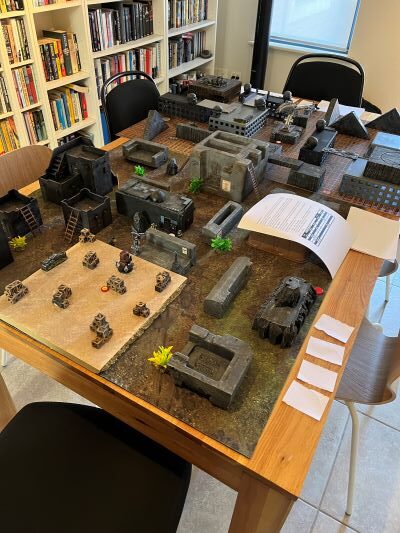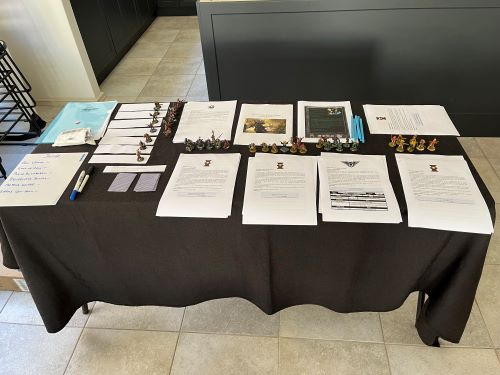My usual mode of operation in this blog is to see how we can use games to improve our leadership skills. However, today I wanted to turn that on its head. What can we learn from the world of work that we can apply to make our games better? When we are at the table, the group’s dynamic can make or break the experience. I’ve recently read Daniel Coyle’s book, The Culture Code: The Secrets of Highly Successful Groups and I think as gamers there is a lot to takeaway. This book looks into the principles that make groups work effectively. While the books audience is meant for leaders in business I believe it offers insights that can transform any gaming group into a fun, inclusive, well-oiled machine. Here’s a few ways you can apply the concepts from The Culture Code to create a high-performing and fun gaming group.
Build Safety: Creating a Comfortable Environment
According to Coyle, the first pillar of a successful group is building safety. In a gaming context, this translates to creating an environment where all players feel comfortable and secure. Of course, its important to remember that safety isn’t just physical but emotional as well.
- Encourage Open Communication: Make sure everyone feels their voice is heard. Each player’s input should be valued. Encourage feedback and be receptive to it.
- Foster Inclusivity: Ensure your group is welcoming to all players, regardless of skill level or background. A diverse group can bring fresh perspectives and ideas, enriching the gaming experience.
- Set Clear Expectations: Clarify the group’s goals, rules, and etiquette. When everyone knows what to expect, it reduces anxiety and builds trust.
Having safety tools at the table, like the X-card, is a great way to make people feel safe. An x-card is simply a card with an x on that sits within easy reach of all the players. If at any time a player feels uncomfortable they pick up the card and that scene will stop. The Dungeon Master will then move the game away from that topic.
For more information on safety tools you can have at the table see this awesome post from dramadice.com.
Share Vulnerability: Building Trust Through Honesty
Coyle emphasizes that sharing vulnerability is crucial for building trust within a group. This doesn’t mean exposing deep personal secrets but rather being honest about mistakes and uncertainties.
- Admit Mistakes: As a game master or leader, show that it’s okay to make mistakes. If you miss a rule or make an error in judgment, acknowledge it openly. This encourages others to do the same, fostering a supportive environment.
- Ask for Help: Demonstrate that it’s okay to seek assistance. Whether you’re stuck on a puzzle or need advice on character development, asking for help can strengthen group bonds.
- Embrace Feedback: Encourage constructive criticism and be willing to act on it. This not only improves the game but also shows that you value the group’s input.
When playing with my regular group, I don’t always know the rules. I’m okay with admitting this and the players jump in and assist. This has definitely strengthened the trust amongst us. It also helps prevent any feelings of them and us forming between the games master and the players.
Establish Purpose: Creating a Shared Vision
A high-performing group needs a shared sense of purpose. This involves not just playing the game but understanding and buying into a common goal or vision.
- Define the Group’s Mission: What does your gaming group aim to achieve? It could be as simple as having fun, or as complex as mastering a particular game. Clearly define this mission and remind the group regularly.
- Celebrate Milestones: Recognize and celebrate achievements, whether it’s completing a challenging quest or reaching a new level of teamwork. Celebrations reinforce the group’s purpose and motivate members.
- Create Traditions: Develop rituals or traditions that strengthen group identity. This could be a regular game night, a pre-game ritual, or special events for holidays or milestones.
This is something that we could do more of in my regular group. I would say our shared vision is to have fun gaming together. While this vision is not something we have articulated often we recently found that two players were not enjoying the horror themes of a particular campaign. Circling back to our purpose of having fun gaming together, we have pivoted the game were playing and moved to a campaign where we can all have fun.

Applying The Culture Code to Gaming
How might these principles look in a Dungeons & Dragons group aiming to enhance its culture:
- Build Safety: The Dungeon Master (DM) creates a welcoming environment by encouraging all players to share their character backstories and contribute to the narrative. Rules and expectations are clearly laid out, ensuring everyone feels secure in their role. they also have an X-card prominently displayed in the center of the table and clearly explain its use.
- Share Vulnerability: The DM admits when they’ve forgotten a rule and asks the group for input. Players are encouraged to share their ideas and help each other, fostering a collaborative atmosphere.
- Establish Purpose: The group agrees on a campaign goal, such as exploring a vast new world or defeating a formidable enemy. Regular sessions are held to maintain momentum, and achievements are celebrated, keeping everyone motivated and aligned with the shared vision.
By incorporating the principles from The Culture Code, your gaming group can become more cohesive, resilient, and high-performing. The result is not just better gameplay, but a richer, more fulfilling experience for all members. In essence, applying these ideas to your group will take group cohesion and culture far beyond the game itself.





